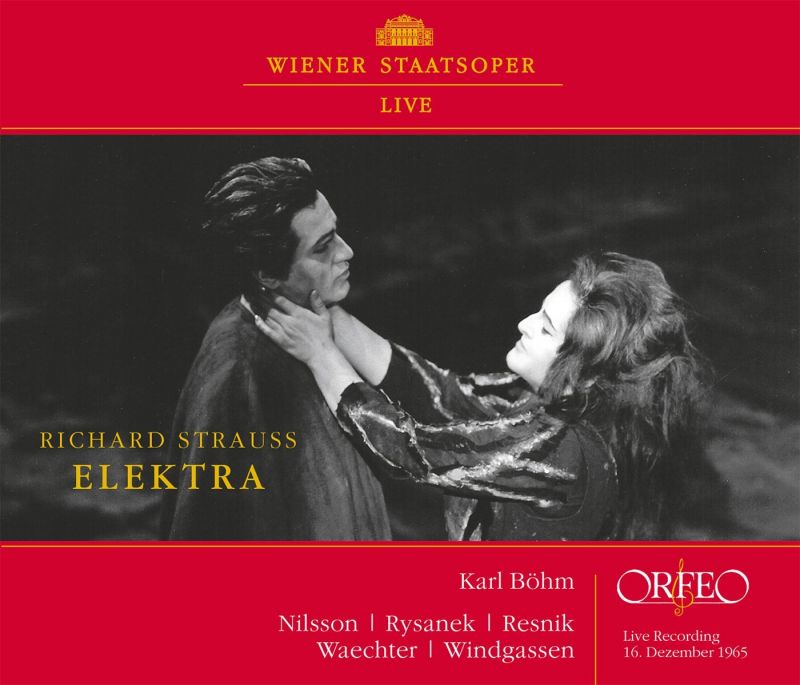STRAUSS Elektra
View record and artist detailsRecord and Artist Details
Composer or Director: Richard Strauss
Genre:
Opera
Label: Orfeo
Magazine Review Date: 10/2014
Media Format: CD or Download
Media Runtime: 99
Mastering:
ADD
Catalogue Number: C886 142I

Tracks:
| Composition | Artist Credit |
|---|---|
| Elektra |
Richard Strauss, Composer
Birgit Nilsson, Elektra, Soprano Danica Mastilovic, Overseer Eberhard Waechter, Orest, Baritone Frederick Guthrie, Tutor, Bass Gerhard Unger, Young Servant, Tenor Herbert Lackner, Old Servant Karl Böhm, Conductor Leonie Rysanek, Chrysothemis, Soprano Margareta Sjöstedt, Confidante, Soprano Margarita Lilowa, Trainbearer, Mezzo soprano Regina Resnik, Klytemnestra, Mezzo soprano Richard Strauss, Composer Vienna State Opera Chorus Vienna State Opera Orchestra Wolfgang Windgassen, Aegisth, Tenor |
Author: Richard Lawrence
Klytemnestra is sung by Regina Resnik: like Nilsson, she really acts with her voice. She too is tender when she recalls the past, and she recounts the horror of her sleepless nights as grippingly as on the Solti recording. Leonie Rysanek begins with the ‘curiously smoky’ tone that I noted in her 1961 New York performance but opens out later. Eberhard Waechter’s Orestes, his first words grim and dark, is excitingly urgent, while Wolfgang Windgassen, the reigning Siegfried of the day, makes a forthright Aegisthus, a part that can all too easily be camped up.
Gerhard Unger, another leading singer not too proud to take small parts, is the Young Servant, as he was for Solti and for Böhm’s studio recording: an effective cameo, though his hoarse laughter would be better suited to the Captain in Wozzeck. His first words are almost inaudible but in general the balance is excellent: so good, indeed, that you can really hear the scampering solos for violin and viola. The conducting is beyond praise, Böhm packing a massive punch at the orchestra’s rising octaves in Elektra’s soliloquy, for instance, but time standing still in the recognition scene. The usual cuts, of course, and the disc break oddly comes after, not immediately before, Elektra’s ‘Nun denn, allein!’. But don’t miss this stupendous performance.
Discover the world's largest classical music catalogue with Presto Music.

Gramophone Digital Club
- Digital Edition
- Digital Archive
- Reviews Database
- Full website access
From £8.75 / month
Subscribe
Gramophone Full Club
- Print Edition
- Digital Edition
- Digital Archive
- Reviews Database
- Full website access
From £11.00 / month
Subscribe
If you are a library, university or other organisation that would be interested in an institutional subscription to Gramophone please click here for further information.




